Search titles
Displaying results 1 to 10 of 186.
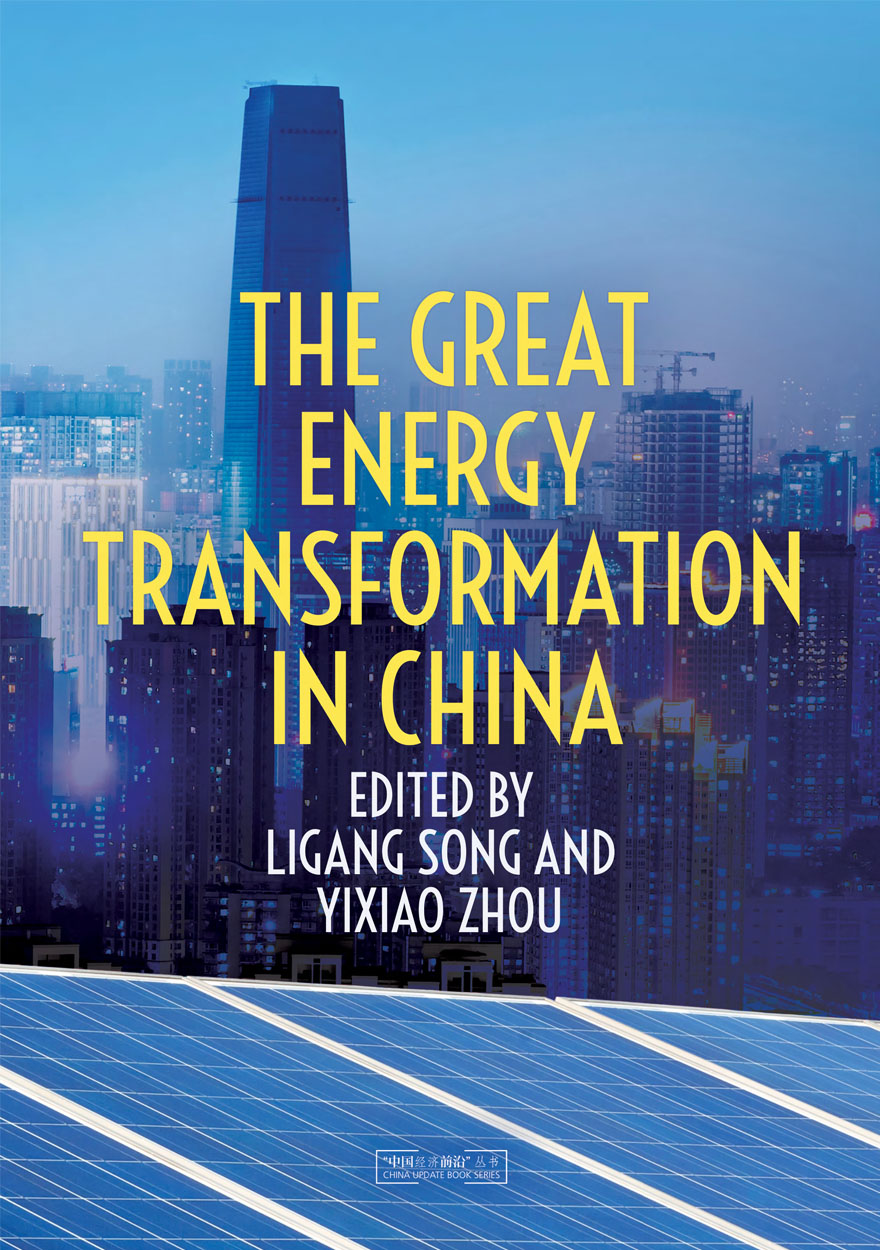
The Great Energy Transformation in China »
Edited by: Ligang Song, Yixiao Zhou
Publication date: November 2025
In 2020, China started the drive to commence a reduction in carbon emissions by 2030 and reach carbon neutrality by 2060, setting in motion a transition to a green, sustainable and clean economy. China has ambitiously developed clean energy alternatives to coal. This transformation encompasses multifaceted strategies ranging from investment in renewable energy and the development of low-emission technologies to more stringent policy regulations on emissions. Renewable energy sources like hydroelectric power, wind, solar and biomass have received substantial attention and investment, with China emerging as a global leader in renewable energy capacity.
In the technology space, China’s transitioning to electric vehicles (EVs) has catalysed the development of a robust EV market, fostering innovation in battery technology and charging infrastructure. China has now become the largest exporter of EVs in the world market. These developments have the potential to materially help curb the world’s carbon footprint and mitigate environmental degradation.
Nevertheless, challenges persist domestically, including the need for grid modernisation to accommodate intermittent renewable energy sources and addressing the socio-economic impacts on coal-dependent regions. In the international market, China’s efforts towards a cleaner and more sustainable energy landscape have helped position it as a leader in sustainable economic development. This could enhance trade of green products, the development of global renewable energy and international investments in energy transformation. However, global trade and investment in green technologies and products are faced with rising geopolitical tensions and trade protectionism. This book discusses China’s achievements in its transition towards renewable energies and identifies new opportunities and challenges for deepening energy transformation in China.
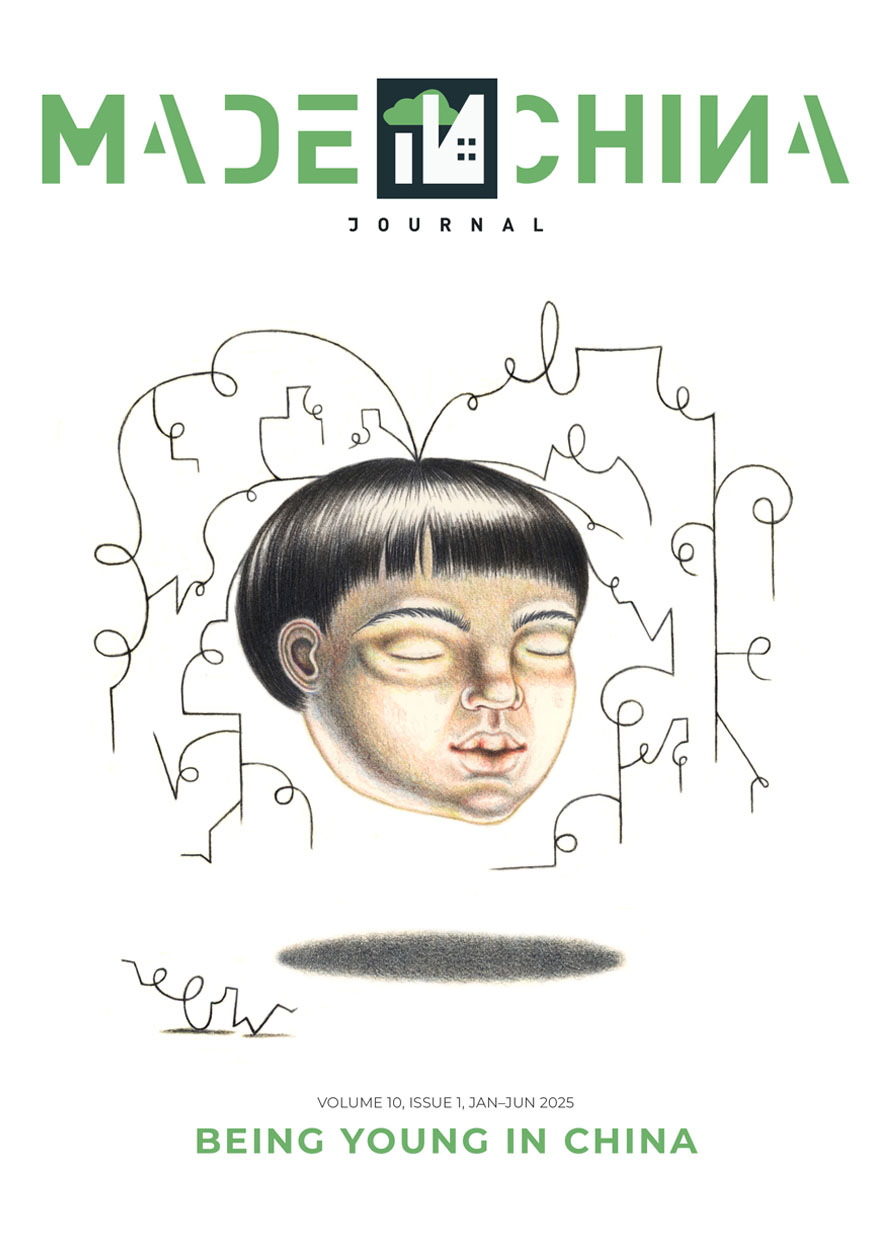
Made in China Journal: Volume 10, Issue 1, 2025 »
Edited by: Ivan Franceschini, Nicholas Loubere
Publication date: October 2025
What does it mean to come of age in a society where the paths to adulthood are increasingly uncertain, yet the pressure to succeed remains relentless? In today’s China, youth navigate the fading promise of reform-era mobility, the grind of economic slowdown, and a moralising narrative that glorifies hardship. Two expressions have come to define this generational mood: neijuan (内卷, ‘involution’), the feeling of being trapped in endless competition with little reward, and tangping (躺平, ‘lying flat’), a quiet refusal to play by those rules. In response to these pressures, young people are experimenting with new ways of living, working, and imagining the future, even as that future grows more precarious. This issue of Made in China Journal explores how these dynamics unfold across schools, homes, workplaces, digital platforms, and creative spaces. Rather than casting youth as rebels or victims, the contributions examine the everyday strategies and compromises that define life under constraint.

Reshaping the State »
Chinese Political Institutions under Xi Jinping
Authored by: Wen-Hsuan Tsai
Publication date: 2025
‘Based on extensive fieldwork and impressive analytic skills, Wen-Hsuan Tsai has produced the most detailed and informative account of the evolving political system in Xi Jinping’s China that I have ever read. It is essential reading for everyone seeking to understand the management and deployment of political power in contemporary China. The book convincingly shows that even though Xi Jinping may have centralized power in his own hands, institutions still matter. Indeed, they are holding China together.’
—Kjeld Erik Brødsgaard, Copenhagen Business School
‘This engaging and thought-provoking academic work reflects the scholar’s dedication to enhancing our understanding of Chinese governance. It blends institutional resonance with leadership dynamics, addressing the knowledge gap in the West about the complexities of the Chinese Communist Party’s resilience and institutions. By examining the idiosyncrasies, risks and challenges of contemporary China—both a major global influence and the world’s second-largest economy—it encourages readers to reflect deeply on its governance and implications.’
—Hon S. Chan, City University of Hong Kong
‘As a leading scholar on China’s elite politics, Dr Wen-Hsuan Tsai reveals how Xi Jinping reshaped the party-state to achieve institutional centralization and made and implemented domestic and foreign policy as the supreme leader of China. This book opens the “black box” of Chinese leadership politics, policymaking and implementation. It is a must-read for anyone who wants to gain deep knowledge about political dynamics in contemporary China.’
—Suisheng Zhao, University of Denver
Coming soon
Notify me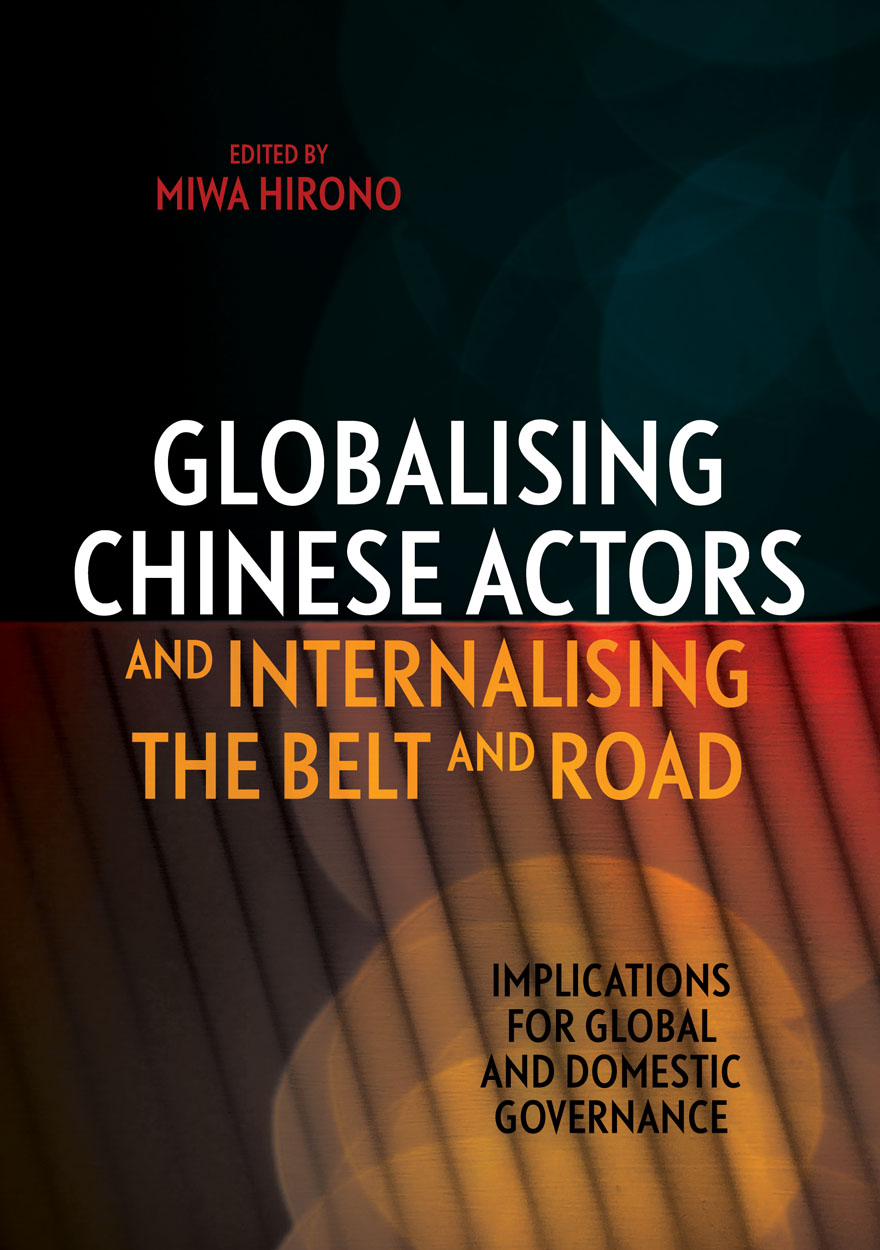
Globalising Chinese Actors and Internalising the Belt and Road »
Implications for Global and Domestic Governance
Edited by: Miwa Hirono
Publication date: June 2025
The literature on the Belt and Road Initiative (BRI) points out either its negative or positive impacts on global and domestic governance. However, such a dichotomy is too simplistic, not least because it tells us little about the complexity of change in the nature of the BRI as it is implemented. This book argues that the BRI manifests an intricate dynamic comprising two contradictory tendencies: Xi Jinping’s top-down and centralised approach to policymaking, with its focus on producing robust Chinese actors who can succeed in a competitive global economy; and a fragmented and decentralised reality made up of an expanding range of actors engaged in realising myriad BRI projects on the ground. The co-existence of these two contradictory tendencies implies that the BRI has a multidimensional impact on global and domestic governance in general, and on the role of Japan in countries where BRI projects take place. Japan matters because of its ‘in-between’ position between non-Western donors and the Development Assistance Committee of the Organisation for Economic Co-operation and Development, a position that offers a unique dimension to a frequently dichotomous discussion of the BRI. Globally, China’s promotion of the BRI has strengthened an aspect of global governance, the ‘open economy’, while at the same time fostering the Chinese nuance of a ‘planned economy’. Domestically, a Chinese-style approach to state management and investment without political conditions may set back democratisation efforts in emerging countries, but the BRI has also given rise to a renewed sense of democracy in those countries. These multidimensional impacts enable China and Japan to find an on-the-ground complementarity in their approaches to development aid in relation to future cooperation.
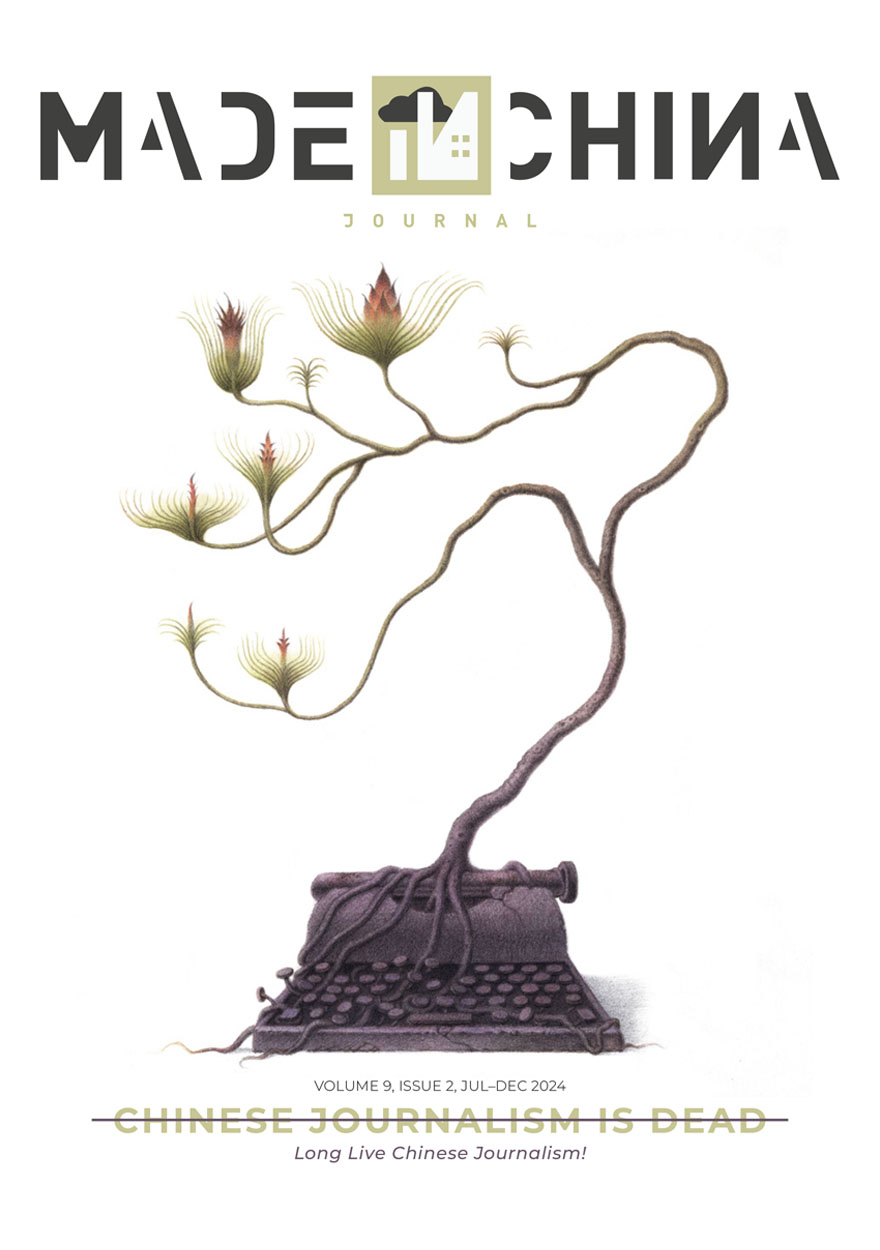
Made in China Journal: Volume 9, Issue 2, 2024 »
Edited by: Ivan Franceschini, Nicholas Loubere
Publication date: May 2025
Chinese journalism is dead—long live Chinese journalism! The dramatic transformations in China’s media landscape over the past decade have led many to declare the death of quality journalism in the country. The Party-State’s tightening grip on information, the dismantling of once vibrant investigative outlets, and the growing precarity of media professionals seem to confirm this narrative. And yet, as traditional spaces for critical reporting shrink, new modes of journalistic practice continue to emerge, often in dispersed and unexpected forms. From citizen-led investigations and social media exposés to transnational collaborations, Chinese journalism has not disappeared—it has adapted. This issue of the Made in China Journal explores the shifting terrain of journalistic production in and about China, tracing the resilience, reinvention, and risks that define the profession today.

China: Regaining Growth Momentum after the Pandemic »
Edited by: Ligang Song, Yixiao Zhou
Publication date: December 2024
The slower growth of the Chinese economy in the aftermath of the pandemic has prompted the Chinese Government to adopt measures to boost domestic consumption and deepen structural reform, with the effectiveness of such policies beginning to be felt. However, China still faces challenges that will affect its growth dynamics down the track. These include the slowdown of its real estate sector, the complex internal and external environments for macroeconomic policy, the high level of income inequality, weak growth in investment by the private sector, negative population growth, high levels of debt, deglobalisation, weakness in the financial sector and equity markets, the inadequacy of its fiscal system and the imperative to decarbonise the economy. China must confront these challenges to maintain growth momentum and achieve higher levels of income and living standards.
The theme of the 2024 China Update book is China: Regaining Growth Momentum after the Pandemic. It discusses some of the challenges and policy issues that are being watched with keen interest by decision-makers and markets alike, including: What are the obstacles to economic growth in the aftermath of the pandemic and how can these be overcome? What are the key challenges and opportunities for China to move to the next level of development against the backdrop of negative population growth? Is it time for a Tax-Sharing System Reform 2.0 to consolidate China’s fiscal position? What are the challenges facing China’s small and medium enterprises? How is China’s business environment faring, and what are the implications for investment? How does China’s urban housing affordability impact its low fertility rate? How will the trade conflict between China and the United States play out regarding semiconductors and other high-tech products? How does China–Africa bilateral agricultural trade impact on African rural transformation?

Made in China Journal: Volume 9, Issue 1, 2024 »
Publication date: August 2024
A new Chinese government textbook for university students, An Introduction to the Community of the Zhonghua Race (中华民族共同体概论), promotes President Xi Jinping's vision for governing the country’s diverse population. This approach shifts away from celebrating cultural differences—what the anthropologist Susan McCarthy once termed ‘communist multiculturalism’—and towards a Han-dominant identity, a form of racial nationalism inspired by sociologist Fei Xiaotong’s concept of ‘multiple origins, single body’ (多元一体). While the constitution of the People’s Republic of China as amended in 2018 guarantees minority rights and political autonomy through the framework of ‘minority nationalities’ (少数民族), the textbook suggests that Tibetan, Uyghur, Mongols, and other Indigenous groups should eventually assimilate into Han culture, raising concerns about the future of minority languages and traditions. Xi Jinping's new approach to national unity faced significant resistance from both minority and Han officials. Yet, this resistance only prompted an even more muscular response: revamping government departments, a harsh crackdown in minority-populated areas, and removing minority officials who oversaw ethnic affairs. In this issue of the Made in China journal, we ask contributors to reflect on the state of ethnic minority culture in the wake of Xi’s new ethno-nationalist order and explore what remains of cultural differences at the end of dreams of communist pluralism and ethnic autonomy.
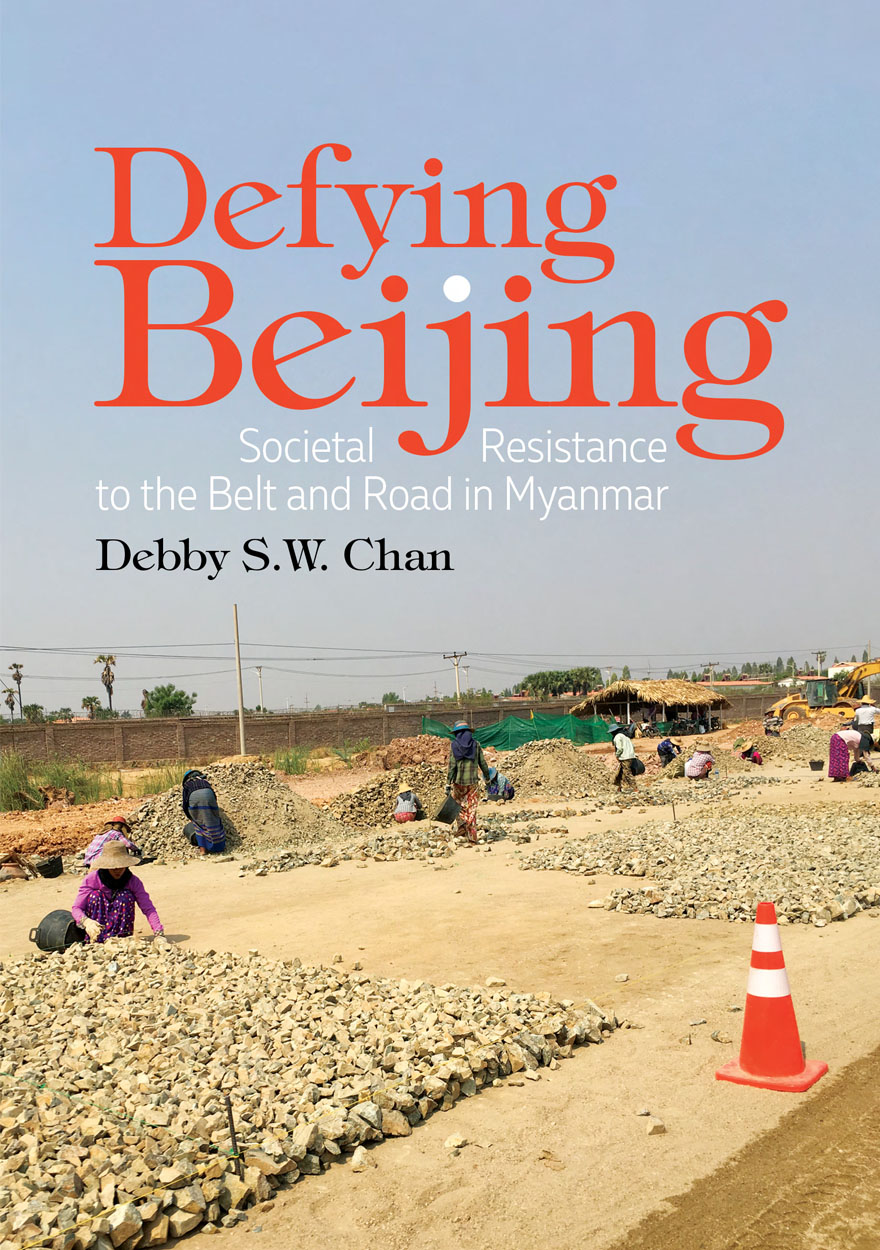
Defying Beijing »
Societal Resistance to the Belt and Road in Myanmar
Authored by: Debby Chan
Publication date: June 2024
The Belt and Road Initiative (BRI) aims to construct a Sino-centric transcontinental infrastructure network in Asia, Europe, Africa and beyond. Within this initiative, the China–Myanmar Economic Corridor (CMEC) is a vital strategic component. The shortcut to the Indian Ocean seeks to improve China’s energy security and facilitate trade. Defying Beijing: Societal Resistance to the Belt and Road in Myanmar shows how Myanmar was able to capitalise on Chinese BRI ambitions to achieve its own desired outcomes during the country’s political liberalisation in the 2010s. Belying the asymmetrical relationship between these two nations, the Myitsone hydropower dam was suspended, the Letpadaung copper mine’s contract was renegotiated, and the Kyaukphyu deep seaport project was downsized. China offered concessions to Myanmar instead of pressuring it to honour those signed agreements. Contrasting a common proposition that US-Myanmar rapprochement disrupted the BRI projects in Myanmar, Defying Beijing argues that the rise of new foreign policy actors – citizens – made project continuation costlier for Naypyidaw in the course of political liberalisation in the 2010s. Naypyidaw was pressured to renegotiate terms with Beijing in the wake of social outcry in the country. Defying Beijing advances our understanding of Chinese–Myanmar BRI relations and demonstrates how citizens can change the course of events of BRI cooperation despite oppressive political environments and an imbalanced bargaining structure. In post-coup Myanmar, Naypyidaw’s policy options were not conditioned by public opinion or protests; nonetheless, armed resistance has posed new domestic constraints in the CMEC’s implementation. Clearly, bilateral economic agreements without citizens’ endorsement are fraught with legitimacy problems and instabilities.
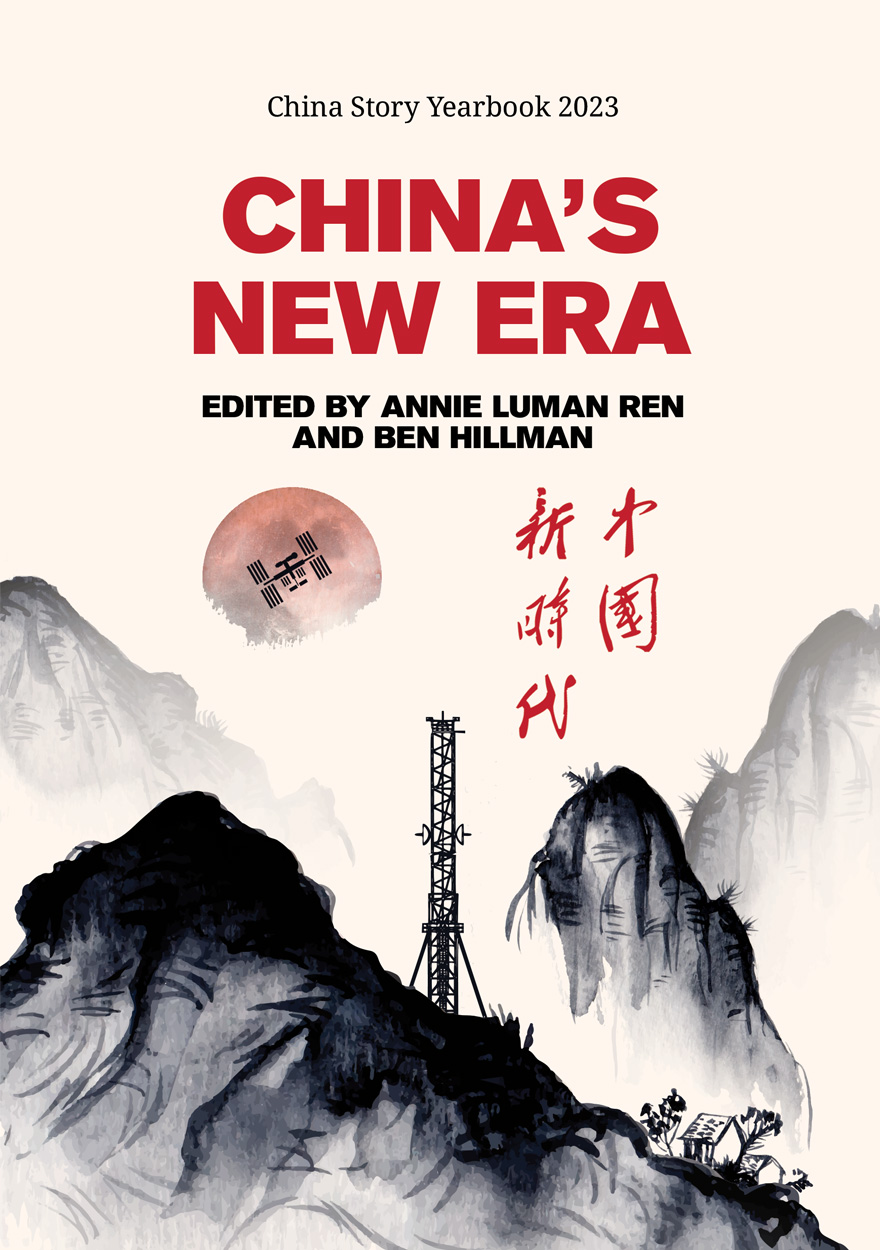
China’s New Era »
Edited by: Annie Luman Ren, Ben Hillman
Publication date: June 2024
According to Communist Party discourse, China’s ‘New Era’ began when Xi Jinping was anointed Party boss in 2012. The shape of this New Era became eminently clear in 2023 when Xi commenced his third five-year term as General Secretary of the Party, a fortification of one-man authoritarian rule unprecedented in post-Mao China. Under Xi, the Party has expanded its influence over government, the economy and society. The Party-State is now more Party than State. The year 2023 saw other ‘new eras’ for China as well. Despite initial optimism sparked by the end of COVID-19 restrictions in late 2022, the Chinese economy in 2023 was buffeted by continuing property sector woes, record unemployment, and an unfolding local government debt crisis. Globally, China adopted a series of new and ambitious diplomatic initiatives to woo the Global South and amplify its voice on the world stage. The China Story Yearbook 2023: China’s New Era provides informed perspectives on these and other important stories that will resonate for years to come.

Ginkgo Village »
Trauma and Transformation in Rural China
Authored by: Tamara Jacka
Publication date: June 2024
Ginkgo Village provides an original and powerfully intimate bottom-up perspective on China’s recent tumultuous history. Drawing on ethnographic and life-history research, the book takes readers deep into a village in a mountainous region of central-eastern China known as Eyuwan. In the twentieth and early twenty-first centuries, villagers in this region experienced terrible trauma and far-reaching socio‑economic and political change. In the civil war (1927–1949), they were slaughtered in fighting between Nationalist and Communist forces. During the Great Leap Forward (1958–1961), they suffered appalling famine. Since the 1990s, mass labour outmigration has lifted local villagers out of poverty and fuelled major transformations in their circumstances and practices, social and family relationships, and values and aspirations.
At the heart of this book are eight tales that recreate Ginkgo Village life and the interactions between villagers and the researchers who visit them. These tales use storytelling to engender an empathetic understanding of Ginkgo Villagers’ often traumatic life experiences; to present concrete details about transformations in everyday village life in an engaging manner; and to explore the challenges and rewards of fieldwork research that attempts empathetic understanding across cultures.



